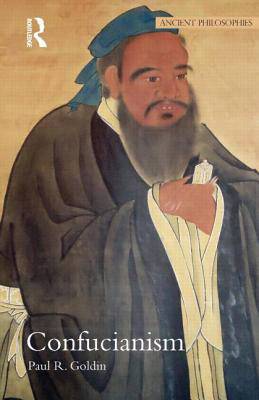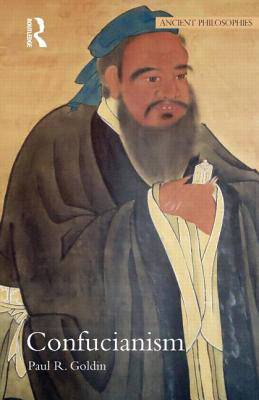
- Afhalen na 1 uur in een winkel met voorraad
- Gratis thuislevering in België vanaf € 30
- Ruim aanbod met 7 miljoen producten
- Afhalen na 1 uur in een winkel met voorraad
- Gratis thuislevering in België vanaf € 30
- Ruim aanbod met 7 miljoen producten
Zoeken
€ 79,45
+ 158 punten
Uitvoering
Omschrijving
"Confucianism" presents the history and salient tenets of Confucian thought, and discusses its viability, from both a social and a philosophical point of view, in the modern world. Despite most of the major Confucian texts having been translated into English, there remains a surprising lack of straightforward textbooks on Confucian philosophy in any Western language. Those that do exist are often oriented from the point of view of Western philosophy - or, worse, a peculiar school of thought within Western philosophy - and advance correspondingly skewed interpretations of Confucianism. This book seeks to rectify this situation. It guides readers through the philosophies of the three major classical Confucians: Confucius (551-479 BCE), Mencius (372-289 BCE?) and Xunzi (fl. 3rd cent. BCE), and concludes with an overview of later Confucian revivals and the standing of Confucianism today.
Specificaties
Betrokkenen
- Auteur(s):
- Uitgeverij:
Inhoud
- Aantal bladzijden:
- 240
- Taal:
- Engels
- Reeks:
Eigenschappen
- Productcode (EAN):
- 9781844651788
- Verschijningsdatum:
- 28/10/2010
- Uitvoering:
- Paperback
- Formaat:
- Trade paperback (VS)
- Afmetingen:
- 137 mm x 213 mm
- Gewicht:
- 226 g

Alleen bij Standaard Boekhandel
+ 158 punten op je klantenkaart van Standaard Boekhandel
Beoordelingen
We publiceren alleen reviews die voldoen aan de voorwaarden voor reviews. Bekijk onze voorwaarden voor reviews.











